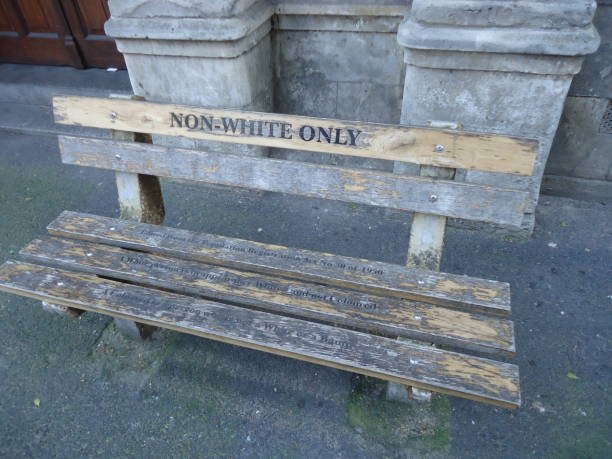The rise of the Apartheid system in South Africa History Grade 12 Questions and Answers for CAPS: Apartheid was a system of racial segregation and discrimination that was implemented in South Africa from 1948 to 1994. The National Party, which came to power in 1948, institutionalized this system of racial segregation through legislation and policies that restricted the rights and freedoms of non-white South Africans. This system of racial discrimination deeply affected the lives of millions of people in South Africa and was widely condemned internationally.
The rise of the Apartheid system in South Africa History Grade 12 Questions and Answers
Long Questions
Questions:
- What was the Apartheid system?
- What were the main policies and laws that were implemented as part of the Apartheid system?
- Who were the main groups affected by the Apartheid system?
- How did the international community respond to the Apartheid system in South Africa?
- What were the main factors that led to the end of the Apartheid system?
Answers:
- The Apartheid system was a system of racial segregation and discrimination that was implemented in South Africa from 1948 to 1994. It was based on the belief that different racial groups should be segregated and treated differently under the law.
- Some of the main policies and laws that were implemented as part of the Apartheid system included the Group Areas Act, which forced non-white South Africans to live in designated areas, and the Population Registration Act, which required all South Africans to be classified into different racial categories. Other laws included the Bantu Education Act, which established separate education systems for different racial groups, and the Prohibition of Mixed Marriages Act, which prohibited interracial marriages.
- The main groups affected by the Apartheid system were non-white South Africans, including Black, Indian, and Coloured people. These groups were denied many basic rights and freedoms, including the right to vote and the right to own property.
- The international community widely condemned the Apartheid system in South Africa. Many countries imposed economic sanctions against South Africa in an effort to pressure the government to end the system of racial segregation. Many organizations and individuals also actively campaigned against the system.
- The main factors that led to the end of the Apartheid system included the growing international pressure and condemnation, the increased resistance from non-white South Africans, and the changing political and economic conditions in South Africa. The release of Nelson Mandela from prison in 1990 and the negotiations that followed between the government and anti-apartheid organizations also played a key role in ending the system.
True or False Questions
True or False Questions:
- True or False: The Apartheid system in South Africa began in the early 20th century. True
- True or False: The Apartheid system was based on racial segregation and discrimination. True
- True or False: The Apartheid system was implemented by the African National Congress. False (it was implemented by the National Party)
- True or False: The Apartheid system was primarily directed towards the black population of South Africa. True
- True or False: The Apartheid system was supported by the majority of the South African population. False (it was widely opposed and protested by many South Africans, both black and white)
- True or False: The Apartheid system was abolished in the 1990s. True
- True or False: The Apartheid system included laws such as the Group Areas Act, which forced different racial groups to live in separate areas. True
- True or False: The Apartheid system also included laws that restricted the rights and freedoms of non-white South Africans, such as the Pass Laws. True
- True or False: The Apartheid system was never challenged or protested by the international community. False (the Apartheid system faced widespread condemnation and sanctions from the international community)
- True or False: Nelson Mandela played a key role in the fight against the Apartheid system. True
- True or False: The Apartheid system was based on the belief that different races were inherently superior or inferior to one another. True
- True or False: The Apartheid system was abolished in the 1980s. False (it was abolished in the 1990s)
- True or False: The Apartheid system was only implemented in South Africa. False (similar systems of segregation and discrimination existed in other African countries)
- True or False: The Apartheid system was only directed towards the black population of South Africa. False (it also affected other non-white racial groups, such as Indians and Coloureds)
- True or False: The Apartheid system was abolished peacefully without any resistance or conflict. False (there was significant resistance and conflict, including armed struggle, before the system was abolished)
- True or False: The Apartheid system was introduced as a way to promote unity and equality among different racial groups in South Africa. False (it was introduced as a way to maintain white minority rule and control over the non-white population)
- True or False: The Apartheid system was primarily directed towards the white population of South Africa. False (it was primarily directed towards the non-white population)
- True or False: The Apartheid system was abolished as a result of economic pressure from the international community. False (it was abolished as a result of political pressure and resistance from within South Africa and the international community)
- True or False: The Apartheid system only affected the political and social rights of non-white South Africans. False (it also affected economic rights, such as access to jobs and land)
- True or False: The Apartheid system was completely dismantled and no remnants of it remain in South Africa today. False (there are still inequalities and disparities that exist as a result of the Apartheid system and its legacy continues to affect South Africa today).






